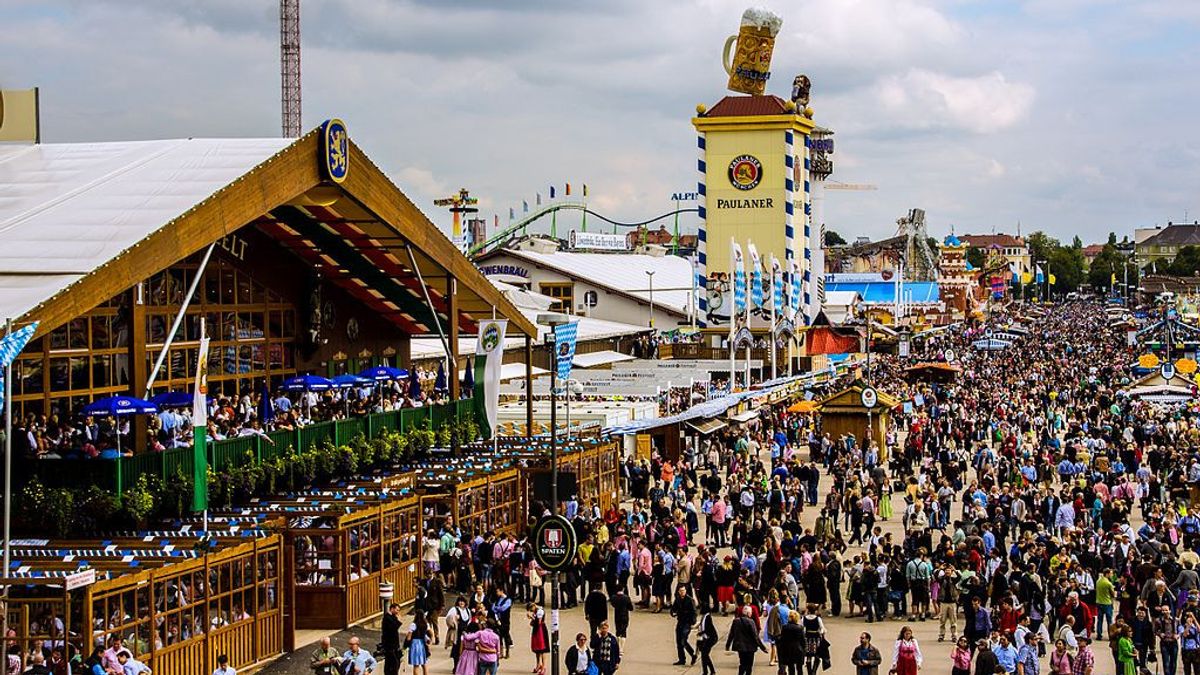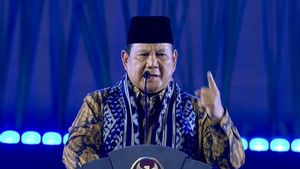JAKARTA - Who doesn't know Oktoberfest? Oktoberfest is the biggest and most popular folk festival in Germany and even the world. Every year, Oktoberfest attracts millions of visitors. There is mass belief, once you come to Oktoberfest, you will always be an Oktoberfest visitor. But how did all this greatness begin?
Citing Oktoberfest.de , Oktoberfest is an annual festival in Munich, Germany. Oktoberfest is held for two weeks and ends on the first Sunday of October.
This festival was first held on October 12, 1810. Oktoberfest was originally held to celebrate the marriage of the Bavarian crown prince - who later became King Louis I - to Princess Therese von Sachsen-Hildburghausen.
The festival concluded five days later, with horse races being held in an open area which was later called the Theresienwiese. The following year, horse racing was combined with a state agricultural fair.
In 1818, many booths were installed for the introduction of food and drink produced from various farms. At the end of the 20th century, the Oktoberfest developed into a large space, with interior balconies and music outlets.
Each of the Munich breweries has put up a temporary building, with a seating capacity of about six thousand people. Every time the Oktoberfest opens, the Mayor of Munich will knock on the first barrel to open the festival.
Total beer consumption during Oktoberfest is more than 75,800 hectoliters (about 2 million gallons). No wonder this festival is also known as the beer festival.
Oktoberfest isn't always filled with joy. In 1850, there is another event worth celebrating: the Bavarian Statue, the guardian of the Oktoberfest and the symbolic figure of the state of Bavaria. But this historical highlight gave way to several challenging years.
The existence of war and the cholera epidemic reduced the spirit of the festival. It took decades to regain the spirit of Oktoberfest, until finally in 1881, the first roast chicken outlet opened and continues to be served to Oktoberfest visitors to this day.
On September 26, 1980, a bomb exploded at the main entrance of the Oktoberfest. The explosion killed 13 people and injured more than 200.
Gundolf Köhler became both the attacker and the victim in the bomb incident. The Oktoberfest attack was one of the worst in German history. Investigations into the case reopened in 2014.
The COVID-19 pandemic
Oktoberfest 2020 is supposed to take place from September 19 to October 4. About six million visitors from around the world are expected to visit Oktoberfest.
However, with the COVID-19 pandemic, the risk of transmission through the festival stands which are mostly crowded and the large number of people on the streets and alleys of Theresienwiese will be too high.
"It hurts. It's a shame," said Presidential Minister Markus Söder at the Bavarian State Chancellery along with the Mayor of Munich, Dieter Reiter. "But we have agreed that the risk is too high."
"As long as there is no vaccine, as long as there is no cure, special attention must be paid," added Söder.
The cancellation of the Oktoberfest 2020 was admittedly quite hitting the mayor of Munich. Oktoberfest is a big annual festival and attracts foreign tourists. The celebration means a lot to many people because it is a moment to have fun and unwind with drunkenness.
"I hope, in 2021. No. I am sure we will see another Oktoberfest in 2021. Hopefully it will be different at that time. Until then, I have to beg you that there is no other solution," Reiter said.
The English, Chinese, Japanese, Arabic, and French versions are automatically generated by the AI. So there may still be inaccuracies in translating, please always see Indonesian as our main language. (system supported by DigitalSiber.id)












